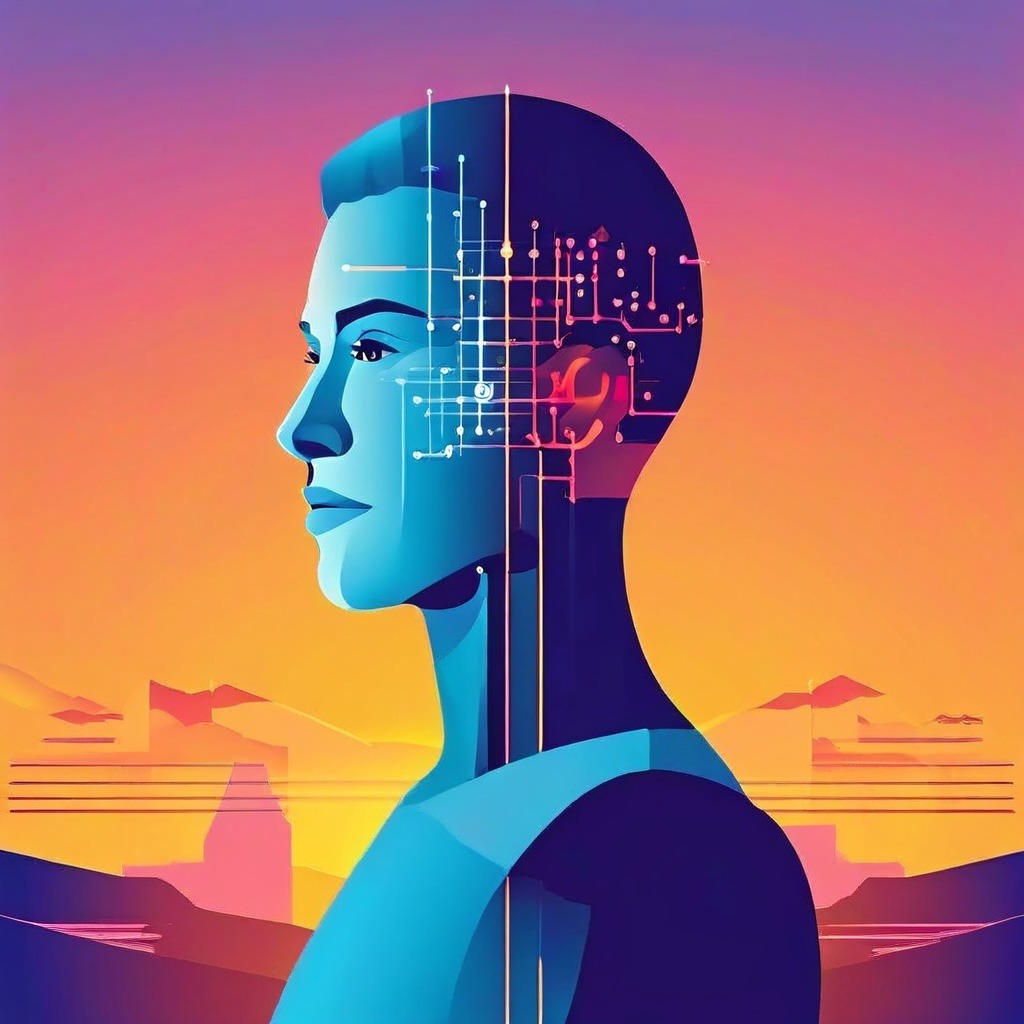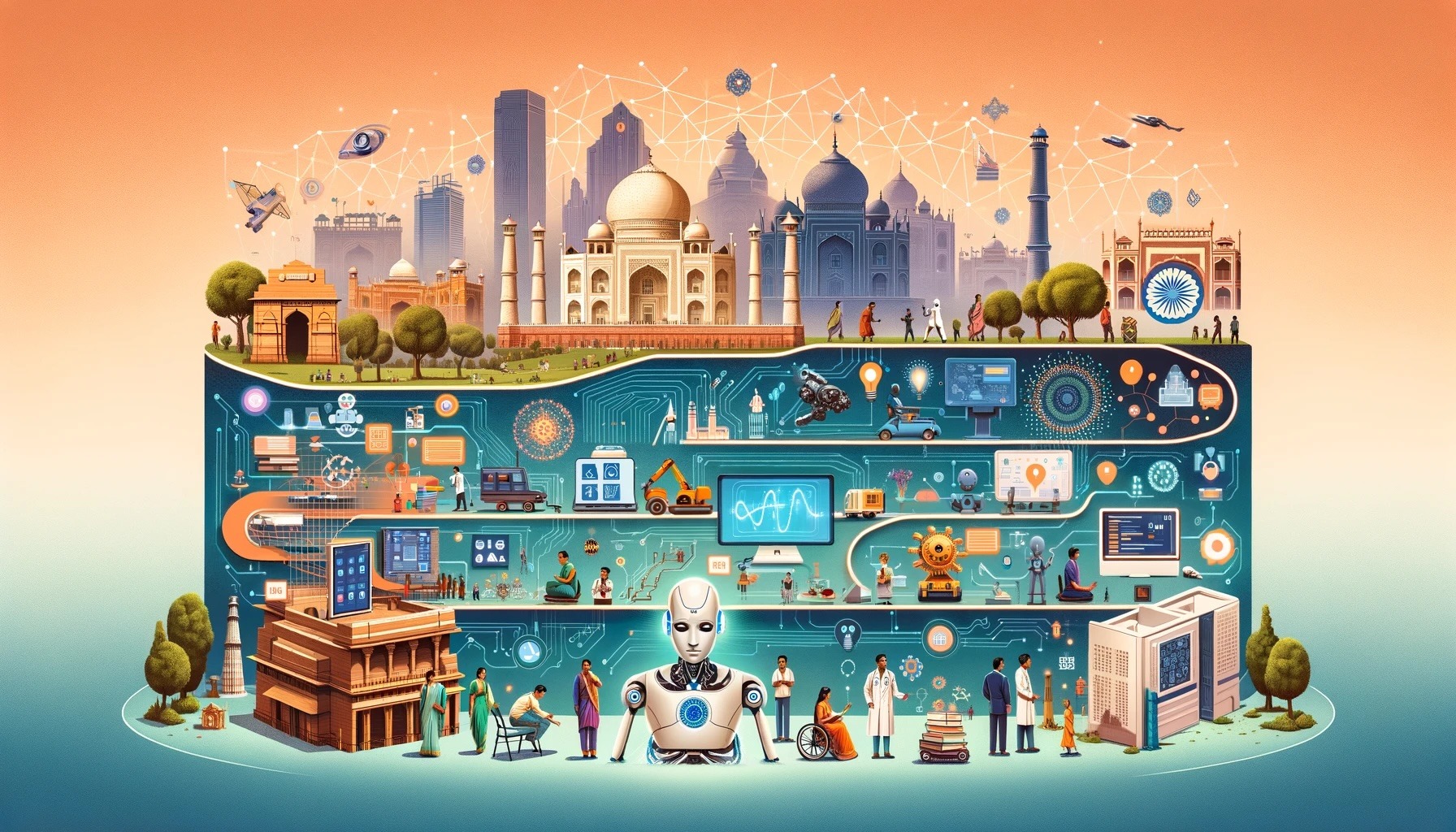The landscape of technology is undergoing a seismic shift, and Artificial Intelligence (AI) sits at the forefront of this transformation. India, a nation brimming with youthful talent and a burgeoning tech sector, is well-positioned to ride this wave. But are there concrete opportunities in India for AI jobs, and what unique skills are required to thrive in this dynamic environment?
The answer is a resounding yes. The Indian government actively promotes AI development, with initiatives like the “National Strategy for Artificial Intelligence” aiming to make India a global leader in the field. This translates to a burgeoning job market hungry for skilled AI professionals. A study by ServiceNow predicts AI creating a staggering 4.7 million new jobs in India by 2027 [AI to Create 4.7 Million New Jobs in India by 2027, Study Finds]. This growth, however, comes with the caveat of upskilling and reskilling the existing workforce to meet the demands of this evolving landscape.
Here’s a deeper dive into the AI job landscape in India:
Opportunities Galore: A Spectrum of AI Roles
The Indian AI job market is diverse, encompassing a wide range of roles. Here are some of the most sought-after positions:
- Data Scientists: The alchemists of the AI world, data scientists extract meaning from vast datasets, a crucial skill for building and training AI models.
- Machine Learning Engineers: These engineers design, develop, and deploy machine learning algorithms, the workhorses of AI applications.
- AI Researchers: Pushing the boundaries of AI, researchers explore new algorithms and techniques, shaping the future of the field.
- Computer Vision Engineers: Specializing in image and video analysis, these engineers enable applications like facial recognition and autonomous vehicles.
- Natural Language Processing (NLP) Engineers: Unlocking the power of human language, NLP engineers develop AI systems that understand and generate human speech and text.
- Robotics Engineers: Bridging the gap between AI and the physical world, robotics engineers design and build intelligent robots.
Beyond Tech: Industry-Specific Applications
AI’s reach extends far beyond pure technology, impacting various industries in India:
- Agriculture: AI-powered solutions are optimizing crop yields, predicting weather patterns, and managing pests.
- Healthcare: AI is aiding in disease diagnosis, drug discovery, and personalized medicine.
- Finance: Fraud detection, risk assessment, and algorithmic trading are just a few areas where AI is transforming finance.
- Manufacturing: AI is optimizing production lines, improving quality control, and predicting machine failures.
- Customer Service: AI-powered chatbots are revolutionizing customer service, offering 24/7 support and personalized interactions.
The Indian Advantage: Localization is Key
While the core technical skills for AI jobs remain similar globally, the Indian context presents unique opportunities. Here’s where localization becomes crucial:
- Understanding Local Languages: India’s linguistic diversity demands AI systems that can process and understand multiple languages. Expertise in NLP for Indian languages is a valuable asset.
- Data Privacy and Security: As AI interacts with sensitive data, understanding and adhering to India’s data privacy regulations is essential.
- Domain-Specific Knowledge: Combining AI expertise with knowledge of specific Indian sectors like agriculture or healthcare can open exciting career paths.
Building Your Arsenal: Essential Skillsets for the Indian AI Workforce
To thrive in the Indian AI landscape, individuals should cultivate a blend of technical and soft skills:
- Technical Skills:
- Programming Languages (Python, R, Java)
- Machine Learning & Deep Learning Techniques
- Data Analysis & Visualization Tools (Pandas, NumPy, Matplotlib)
- Cloud Computing Platforms (AWS, Azure, GCP)
- Specific tools depending on the chosen field (e.g., TensorFlow for deep learning)
- Soft Skills:
- Problem-Solving & Analytical Thinking
- Critical Thinking & Creativity
- Communication & Collaboration
- Adaptability & Lifelong Learning
- Ethical Considerations of AI
The Road Ahead: Embracing the Future
While the future of AI in India is bright, challenges remain. Bridging the skill gap, ensuring equitable access to AI education, and addressing ethical concerns regarding bias and data privacy are crucial aspects to consider.
However, India’s talent pool, combined with government initiatives and a thriving startup ecosystem, positions the nation to be a major player in the global AI game. By equipping themselves with the right skillsets, aspiring AI professionals can be at the forefront of this exciting journey, shaping the future of India and the world.
Call to Action:
This blog post provides a glimpse into the exciting world of AI jobs in India.
Where to Hone Your Skills
- Online Courses and Platforms: Platforms like Coursera, Udemy, Udacity, and edX offer a wealth of AI and Machine Learning courses. Look for those focused on the Indian market or with projects tailored to address Indian challenges.
- University Programs: Many Indian universities offer specialized AI degrees or courses. Look at the Indian Institutes of Technology (IITs), Indian Institutes of Management (IIMs), and other top-tier engineering and management schools.
- Bootcamps: Intensive AI bootcamps can accelerate your learning, often catering to industry-specific applications. Look for those with good reputation and strong job placement networks.
- AI Communities and Hackathons: Joining online AI communities and participating in hackathons can help with networking, developing practical skills, and learning to work collaboratively.
Finding the Right AI Job in India
The hunt for an AI job in India can be made smoother with a few strategies:
- Job Portals: Utilize general job boards like LinkedIn, Indeed, and Naukri.com alongside AI-specific sites like ai-jobs.net.
- Company Websites: Directly check the career pages of companies known for their AI initiatives, especially Indian tech giants and multinational corporations with operations in India.
- Networking: Leverage your university alumni network, attend industry events and conferences to meet AI professionals and companies.
- Startups: The Indian startup ecosystem is vibrant, and many AI-focused startups offer exciting opportunities and the chance to wear multiple hats.
Additional Tips for Success in the Indian AI Job Market
- Highlight Indian Projects: If you’ve completed projects addressing challenges specific to the Indian context, prominently showcase them in your resume and portfolio.
- Brush up on Domain Knowledge: While technical skills are essential, complement them by demonstrating an understanding of at least one industry domain in which you’d like to apply AI.
- Emphasize Soft Skills: Showcase your adaptability and willingness to learn, essential traits to navigate and succeed in a rapidly evolving technological field and a cross-collaborative work environment.
Addressing Challenges and Shaping the Future
Let’s acknowledge the challenges faced in developing a robust AI workforce in India and how we might turn them into opportunities:
- Skill Mismatch: Emphasize training programs and reskilling initiatives aligning with industry needs. Encourage collaboration between universities and companies to bridge this gap.
- Infrastructure Gaps: Highlight the need for investment in cutting-edge computing infrastructure and cloud resources to support the development and deployment of advanced AI models.
- Bias and Ethical Concerns: Promote courses and workshops on ethical AI development and encourage discussions about the societal implications of AI technologies.
To conclude
The AI revolution isn’t slowing down, and India is well-positioned to take center stage in this transformation. By focusing on essential skills, understanding the Indian context, and strategically navigating the job market, a fulfilling career in AI can be within reach. It’s an adventure in the making, and this blog post aims to be the first step on your journey into the exciting world of AI in India.
Read another interesting article in India Times HERE





